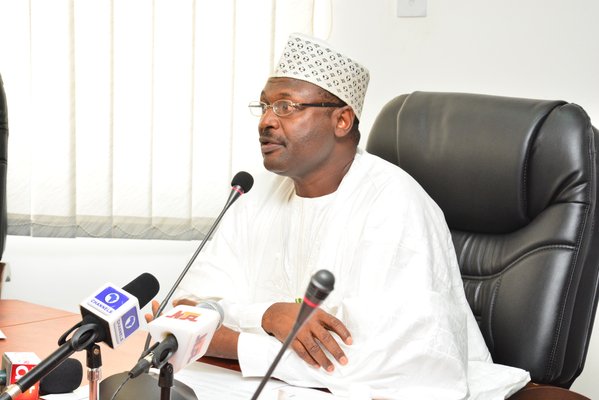
A commission that will deal with electoral breaches is about to be consummated, going by the traction it has got in the House of Representatives. The Committee of the Whole House recently considered and adopted the work of its Committee on Electoral Matters on a bill to this effect, thus making its Third Reading and passage inevitable.
Apparently, the move ticks all the right boxes given the country’s weird experiences during elections. The integrity of their outcomes has been questioned as a result. Besides, interest in such a commission is all the more kindled with the recent release of the timetable for the 2019 polls by the Independent National Electoral Commission. There has been a persistent call for such a unique legal framework.
Details of the bill contain sanctions ranging from N500,000 to N50 million fine, or a 10-year jail term, depending on the offence. According to the proposed law, unauthorised printing, distribution, destruction of ballot boxes or results attracts 10 years of imprisonment or an option of N50 million fine. Anybody who engages in double registration, forgery and mutilation of a registration document risks a 12-month jail term or a fine of N1 million or both.
Other offences covered include impersonation or use of another person’s voter card; signing of a nomination paper to be a candidate when such a person is ineligible; disorderly behaviour at political rallies and being in possession of offensive weapons.
Electoral officials are not spared either. For instance, delivering false results, deliberately delaying voting and announcing false results are serious offences with a 12-month jail term; while “Any Returning Officer or Collation Officer, who delivers or causes to be delivered, a false certificate of return…” on conviction will be jailed for a maximum of three years. Candidates too, whose campaign donations and expenses run foul of the approved limit, will incur the wrath of the law. This affects the presidential, governorship and legislative candidates at both state and federal levels.
For too long, these offences have impaired elections in Nigeria; free rein is given to electoral banditry: stuffing of ballot boxes and snatching of such materials by hired thugs, killings and rigging. The idea of a special tribunal to deal with this incubus was inadvertently set in motion by the late President Umaru Yar’Adua, who admitted that the 2007 polls, which brought him to office, were flawed. The election was conducted with the “do-or-die” mantra of his predecessor. Voter direct data capture machines of INEC were found in the residences of some debauched political figures, who were never punished.
Therefore, Yar’Adua set up the Mohammed Uwais-led panel on electoral reform, which recommended it. But the Goodluck Jonathan administration that ought to have implemented it looked the other way.
This seeming official endorsement of depravity in determining the wishes of the people at the polls created a monstrosity in the 2011 elections, where 870,000 offences were reported during voter registration. This was a fraud of an “industrial scale,” which the then INEC chairman, Attahiru Jega, declared his agency ill-equipped to handle, a fact evinced in the about 200 cases prosecuted out of the lot. As a member of the Uwais-led panel, Jega had underscored the imperative for the Electoral Offences Tribunal.
Where 58 people were killed in the 2015 pre-election violence, according to the National Human Rights Commission, in 61 incidents in 22 states, and nobody was made to face the law, entrenches carnage as a fundamental and inextricable element of elections in Nigeria. This should not be so.
The notorious 2007 elections, which international monitors declared as the worst global electoral heist, laid the foundation for staggered governorship polls in Anambra, Edo, Ondo, and Ekiti, among others. None of those who masterminded this farce was brought before the law.
Now, Nigeria has no choice but to institute a strong legal regime to curb electoral brigandage. The West and other parts of the world with deep-rooted democracies never achieved the feat by condoning these compromises that undermine the legitimacy of our elections. In the May 2010 general election in the United Kingdom, for instance, 232 alleged malpractices were not overlooked: one conviction was secured; another case was prosecuted and 68 others were put under investigation, while 137 cases received no further attention. The practice there has been to set up an election Single Point Contact officer in every police station for speedy response to allegations, the Electoral Commission’s report says.
President Muhammadu Buhari, who had directed the INEC Chairman, Mahmoud Yakubu, in November 2015, when he assumed office, to end these ugly features of our elections, should bring all the powers of his Presidency to bear on the realisation of the tribunal. What is required of the House is to expedite action on the bill, pass it swiftly, send it to the Senate for concurrence, and then to the President for assent. All the mechanism for this redeeming novelty should be in force before electioneering reaches over-drive. This is critical as its work covers misconduct that may occur before and during the next elections.
END

Be the first to comment